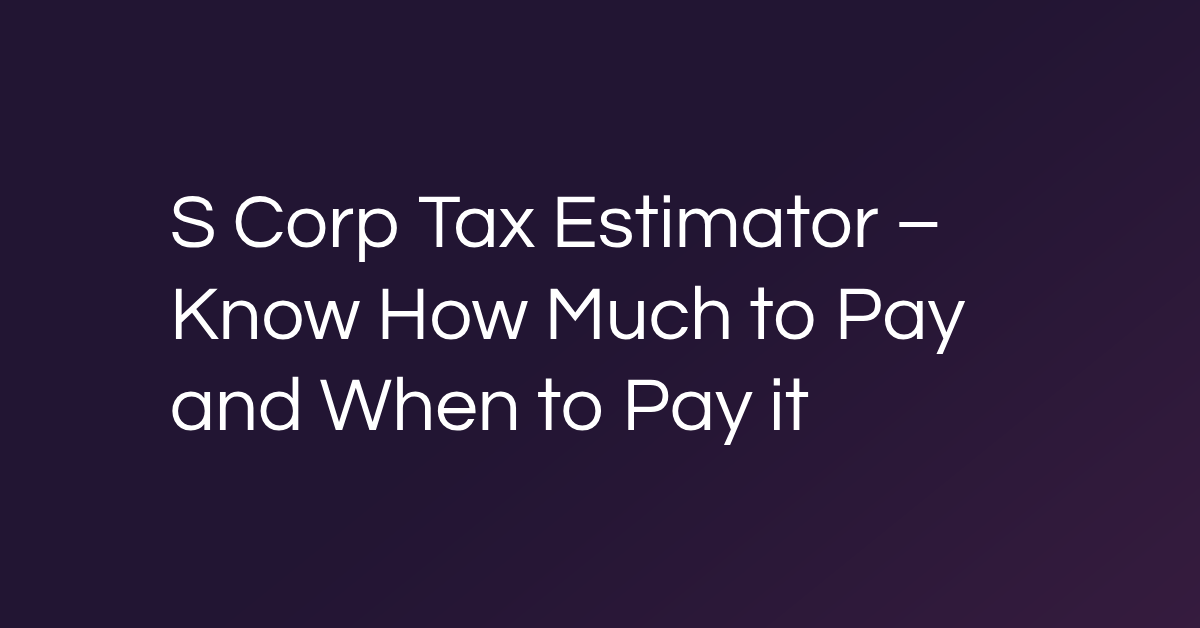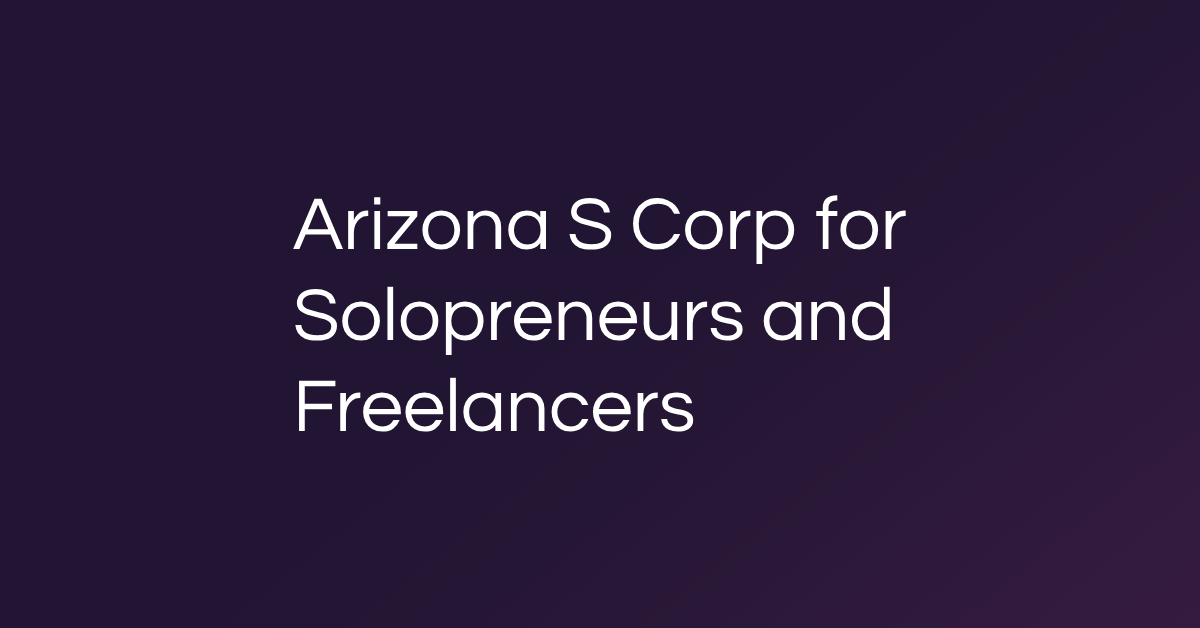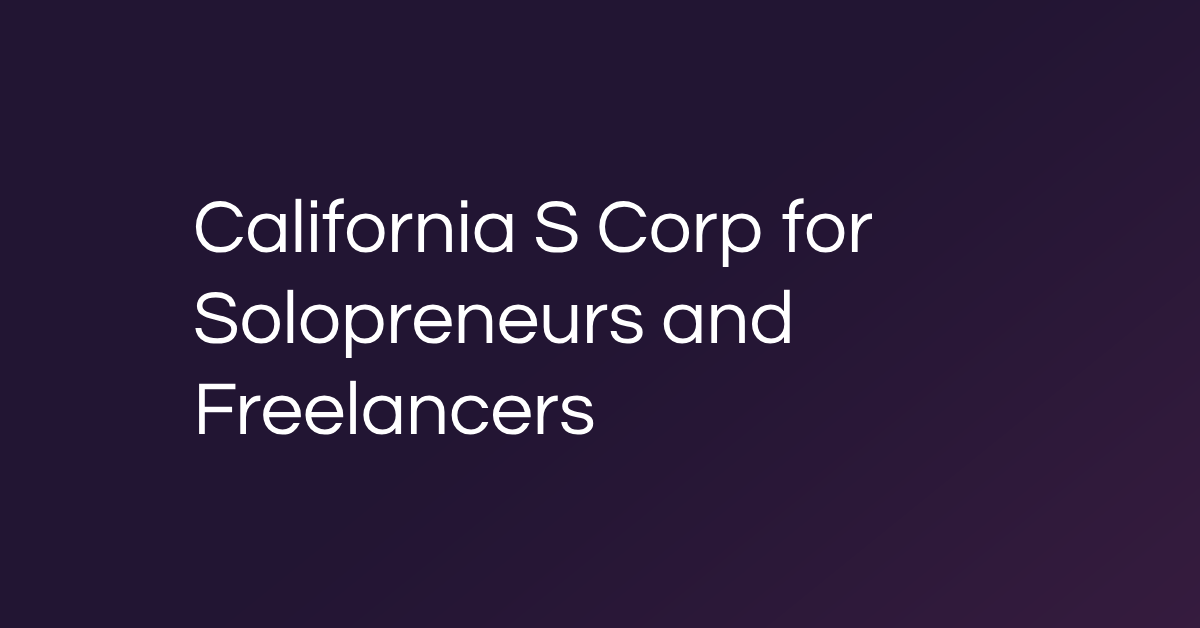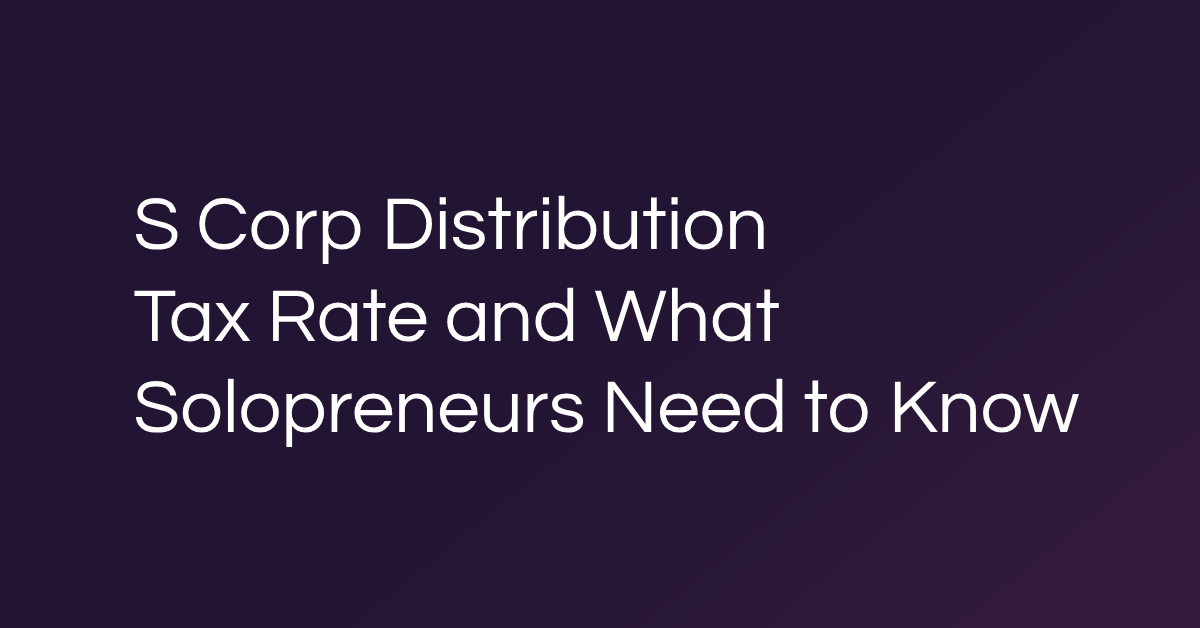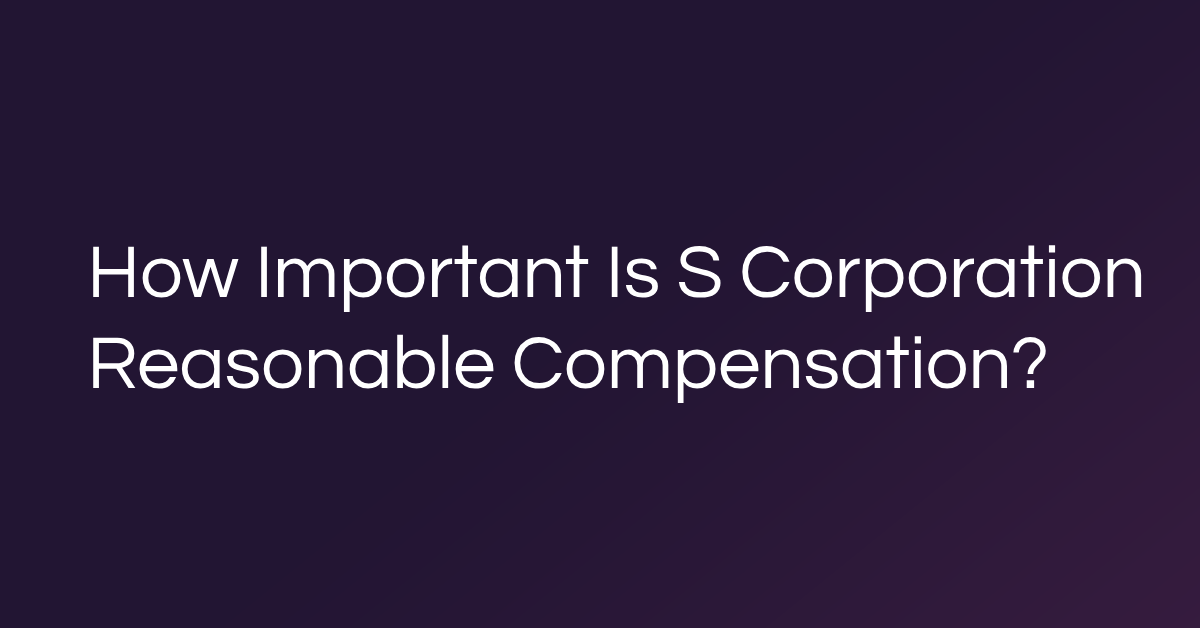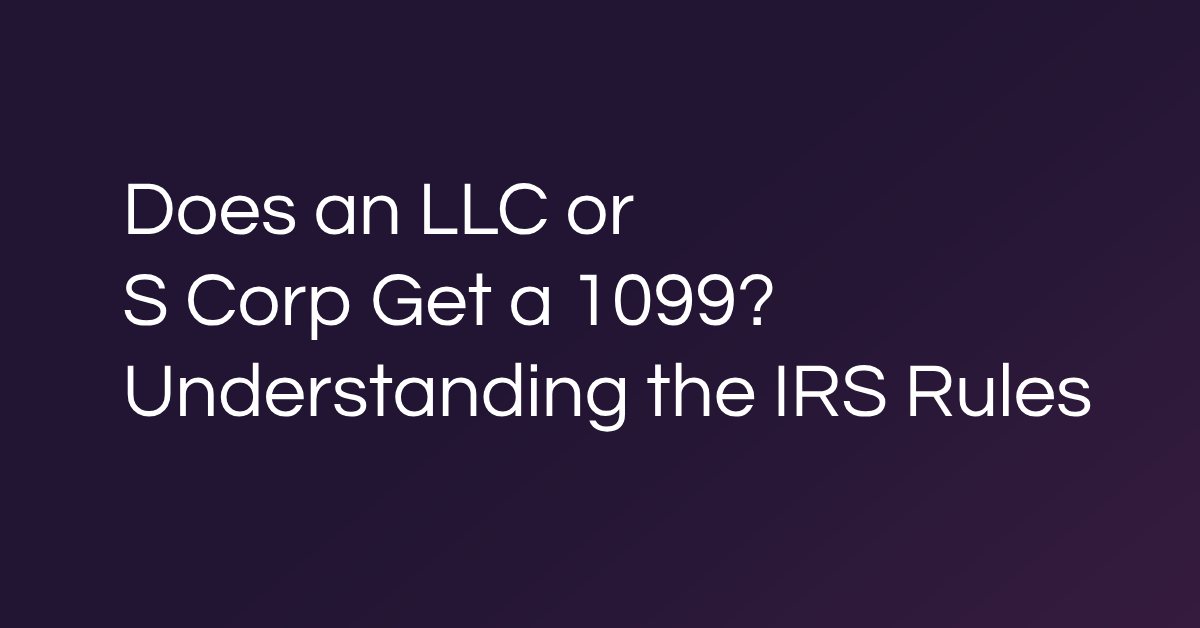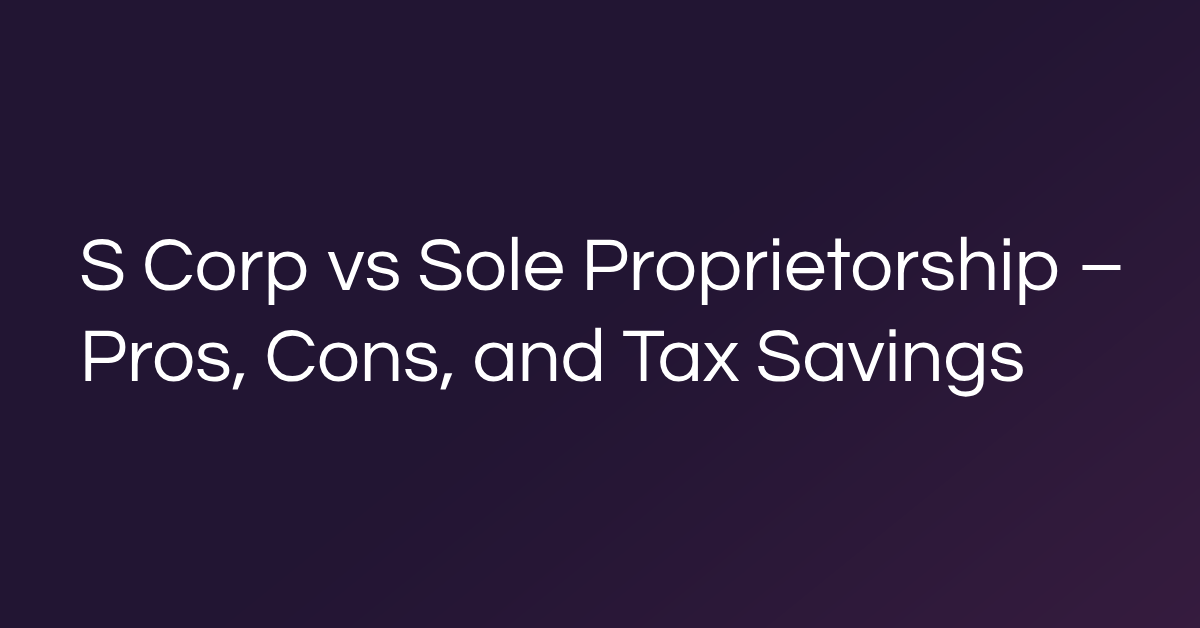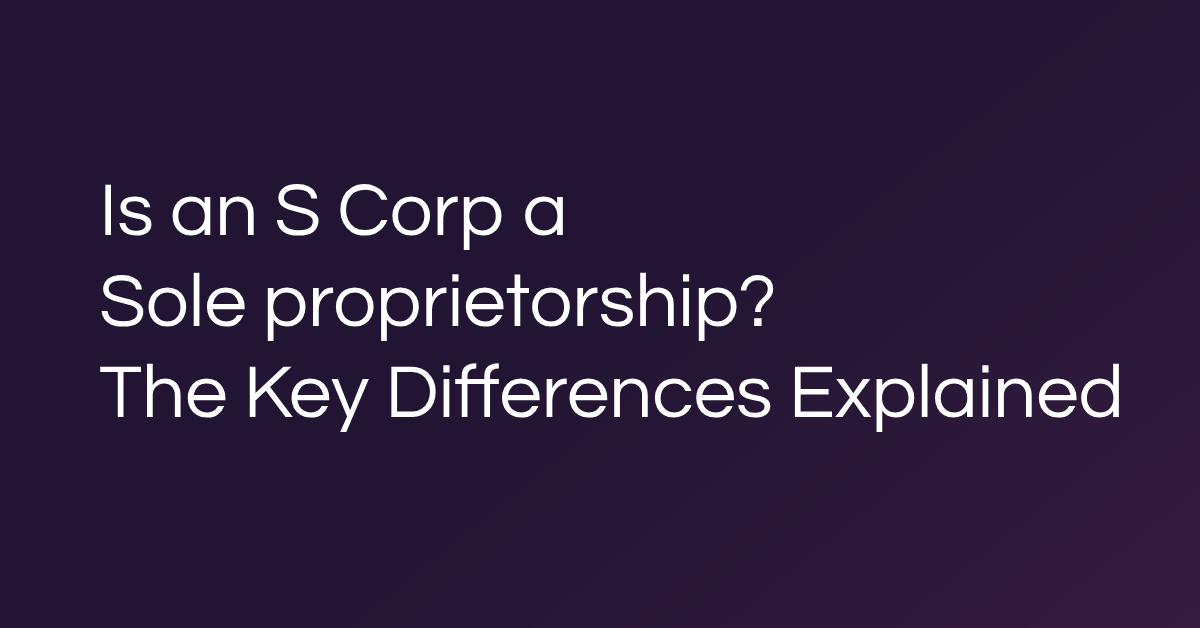Running an S corporation (S corp) brings significant tax responsibilities, particularly when it comes to estimated quarterly tax payments. Unlike traditional employees who have taxes withheld from their paychecks, as an S corporation, most solopreneurs and independent professionals must calculate and submit taxes throughout the year. Missing deadlines or miscalculating payments can lead to IRS penalties and financial stress.
An S corp tax estimator tailored for the S corp business structure simplifies this process by providing accurate projections and ensuring compliance with tax regulations. Whether you’re a small business owner, freelancer, or solopreneur, understanding your tax obligations is crucial for keeping your business financially sound and penalty-free.
What are quarterly taxes for an S Corp?
S corps must pay estimated taxes on a quarterly basis. The IRS requires businesses to submit these payments to prevent underpayment penalties and ensure tax obligations are met throughout the year. Such payments typically cover:
- Income tax on S corp earnings: Profits are passed through to shareholders, who report them on personal tax returns
- Payroll taxes: Social Security and Medicare taxes on salaries paid to employees, including shareholder-employees
- County & city obligations: Additional tax liabilities depending on your business location and revenue sources
The IRS mandates quarterly payments if your expected tax liability exceeds $1,000 annually, making accurate estimates essential to avoid penalties.
Who needs to pay estimated taxes?
S corp shareholders and owners must make quarterly tax payments if they anticipate owing at least $1,000 after deductions and credits. Because S Corps are pass-through entities, business profits flow to shareholders, who must report and pay taxes on their personal returns. As a solopreneur, this means you.
Failing to submit timely payments can result in IRS penalties, making it crucial to track earnings and stay on top of tax deadlines.
How to calculate and submit quarterly taxes
Quarterly tax payments require careful estimation of your business’s earnings to avoid underpayment penalties. Following a structured approach ensures accuracy and compliance.
Estimating your tax payments
Accurate estimation of your quarterly tax payments ensures compliance and prevents underpayment penalties:
- Estimate your annual business income based on historical earnings and revenue projections (Besolo’s business and accounting platform can do this for you!)
- Deduct business expenses to determine taxable income.
- Calculate tax liability using current federal and state tax rates.
- Divide the estimated total tax liability by four to determine quarterly payments.
Utilizing an S Corp accounting and tax planning platform like Besolo will streamline calculations and account for changing business conditions.
Paying your quarterly taxes
The IRS requires quarterly payments to be made in April, June, September, and January of the following year. To ensure timely payments:
- Use the IRS Electronic Federal Tax Payment System (EFTPS) for secure online submissions
- Set up automatic transfers to avoid missed deadlines
- Keep thorough records of tax payments to track liabilities and simplify year-end filings
Timely tax submissions prevent financial surprises and keep your business compliant with federal and state regulations.
Potential penalties and how to avoid them
Missing quarterly tax payments or underestimating taxes can lead to penalties and interest charges. The most common tax-related penalties include:
- Underpayment penalties: If you pay less than required, the IRS may impose penalties on the unpaid amount
- Late payment penalties: Missing deadlines results in accruing interest and additional fines
- Failure to file penalties: Inaccurate or missing tax filings increase liability and may trigger audits
How to avoid penalties
Failing to meet quarterly tax obligations can lead to penalties, interest charges, and IRS scrutiny. Underpayment, late payments, or incorrect filings may trigger financial consequences that impact cash flow.
Proactively managing quarterly tax payments helps prevent costly errors and keeps your business financially secure:
- Mark tax deadlines on your calendar and set reminders to make timely payments
- Adjust estimated payments as income fluctuates to avoid underpayment penalties
- Maintain accurate financial records to support tax filings and deductions
- Consult a tax professional or CPA to ensure compliance and maximize tax-saving opportunities (great news — both Solo LLC and Solo S Corp offer onboarding with CPAs and ongoing support from U.S.-based tax professionals)
Proactive tax management can save you from unnecessary fines and keep your business financially secure.
Strategies for effective management of quarterly taxes
Rather than scrambling to meet tax deadlines, implement strategies to simplify the process.
Track income and expenses continuously
Regular monitoring of business finances and expenses ensures accurate tax estimates. Use cloud-based accounting software like Besolo to automate tracking and reporting, plus a dedicated bookkeeper to organize financial records and streamline tax preparation.
Set aside funds for tax payments
Avoid cash flow issues by:
- Allocating a percentage of revenue to a tax savings account
- Separating tax funds from business operating expenses to ensure readiness for each payment deadline
Use tax planning tools
Online tax calculators and professional tax software can automate estimates and reduce errors. Some tools also provide real-time tax insights and compliance tracking to keep businesses on schedule.
Work with a CPA or tax experts
Tax laws frequently change, and professional guidance ensures compliance while optimizing tax-saving strategies. A CPA can:
- Adjust tax estimates based on business performance
- Identify deductions and credits to lower tax liabilities
- Ensure filings are accurate and submitted on time
Simplify your S corp tax payments with expert support from Besolo
Quarterly tax payments are a critical responsibility for S corp owners, but they don’t have to be overwhelming. By knowing your tax obligations, estimating payments accurately, and staying ahead of deadlines, you can avoid penalties and keep your business financially stable.
Stop second-guessing your tax payments — Besolo’s Solo S Corp platform provides automated tracking, real-time tax insights, and CPA-backed guidance so you can focus on running your business. From filing deadlines to quarterly tax compliance, our expert-backed solutions help you stay on track.
Get started today and take the guesswork out of your S corp taxes.

